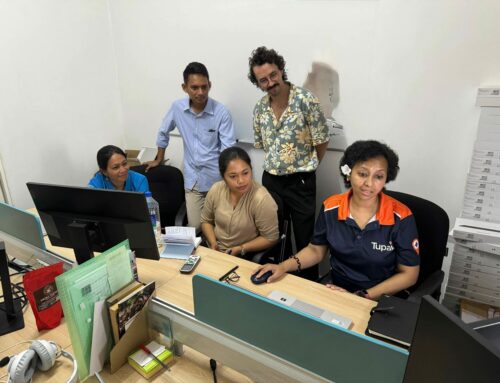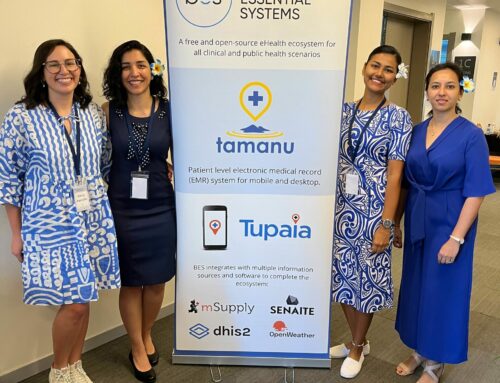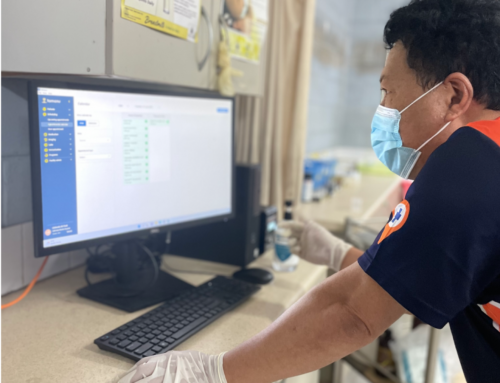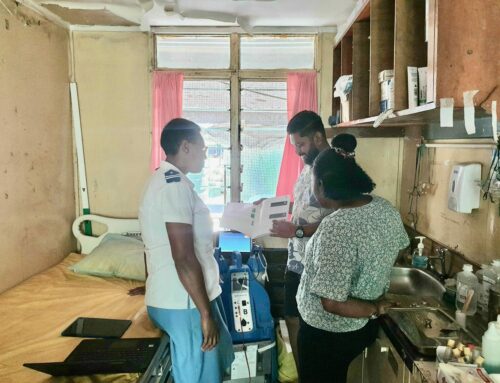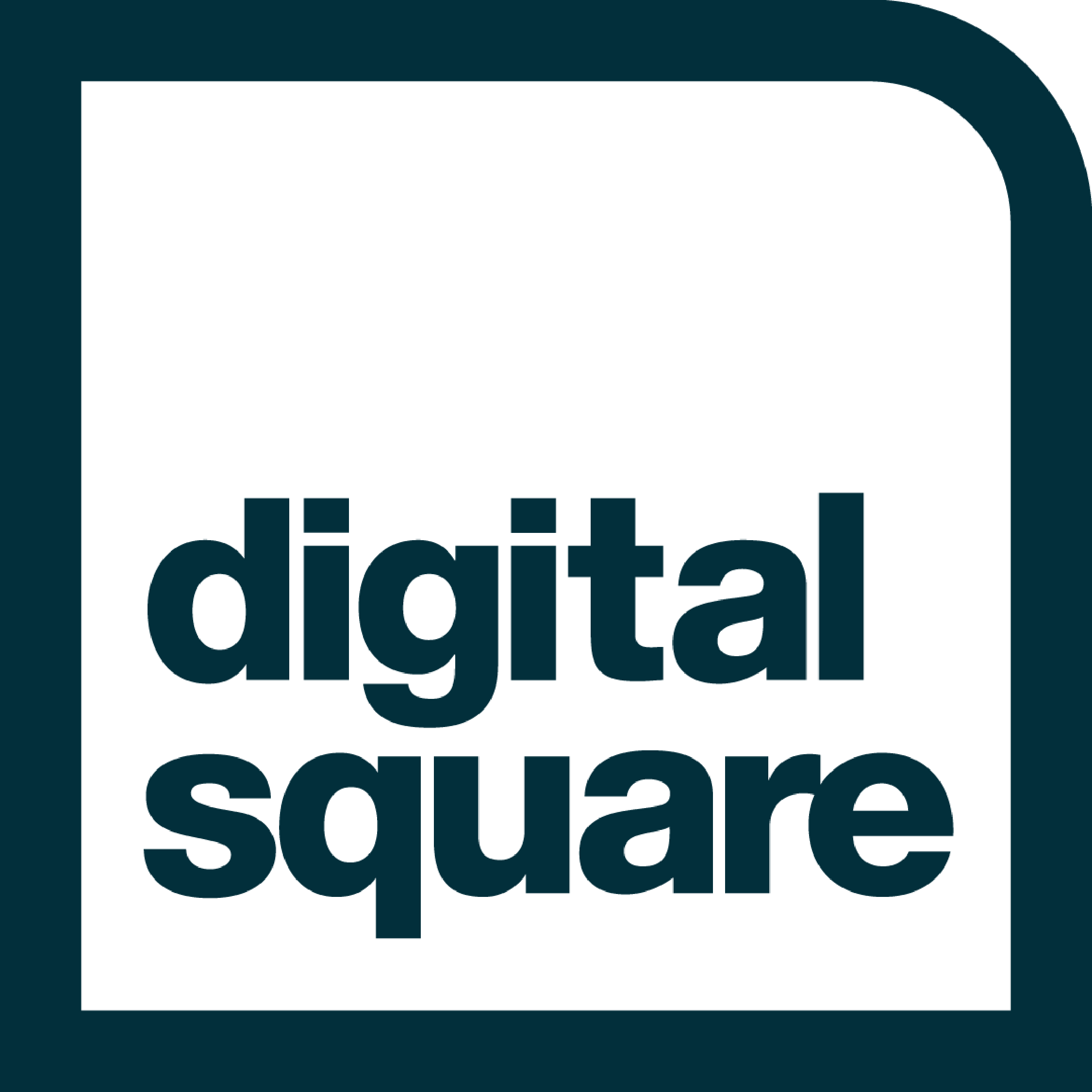The sharing of skills across islands of the Pacific builds strength and resilience within local health systems. According to mSupply and DTAC staff member Jessica Jago ‘People in the region are finding that courses from resource-rich nations are not always as translatable, or as context-specific as cross-island training has the potential to be’.
Jessica believes that ‘continued ‘South to South’ cooperation in the region can foster stronger relationships and increase the potential for healthcare workforce mobilisation in the Pacific’.
Everyone in the Pacific benefits when Pacific islands can request staff support with broader experience and knowledge during staff shortages, emergencies, and crises and to support health campaign rollouts. Exchanging skills and staff within the Pacific has the added benefit of cultural understanding and nuance. This knowledge shortens the learning curve in a new setting for staff with greater familiarity with similar healthcare challenges.
The regional skill exchanges work towards cultural and contextual understanding. They focus on respect for national sovereignty and shared responsibility, strengthening the region’s healthcare systems.
Knowing how to communicate culturally and speak with a regional voice is more likely to lead to real and effective change, even in the diverse language and cultural systems of the Pacific region.
‘Knowing the software is one thing, but looking around and seeing what can be improved diplomatically so that real change happens is important too’, says Elizabeth Bryson, who visited Niue on the DTAC program skills exchange from the Cook Islands. In April, DTAC invited Elizabeth to visit Niue to support the move from paper to digitisation of their pharmacy systems by implementing mSupply.
Elizabeth arrived in Niue with the public health team and got straight into the stocktake of one of their three locations. She met with the pharmacy team and had many suggestions to help to create a safer and more efficient workplace, skills she had already learned from her work in the Cook Islands.
As a champion of change, Elizabeth believes that ‘’Building relationships is so important across the Pacific.’ She never imagined that she would ever visit Niue to support their health system, but now she can see that it is a practical solution with so much to gain from both sides. She takes with her skills and knowledge that will impact a project she is working on in the outer islands of her country, where the medicine supply can be difficult to manage.
Elizabeth hopes that regional collaboration can continue between countries in the Pacific and that she can take the lessons learned from her experience to continue to strengthen health systems in the Cook Islands. She can see that the much more isolated Niue and outer Cook Islands have some similarities – and she now has some insight into possible problems and solutions because of her experience with skills exchange in Niue.
BES and the mSupply Foundation support the Pacific skills exchange through peer-to-peer networks between PICTs with the support of DFAT and MFAT.
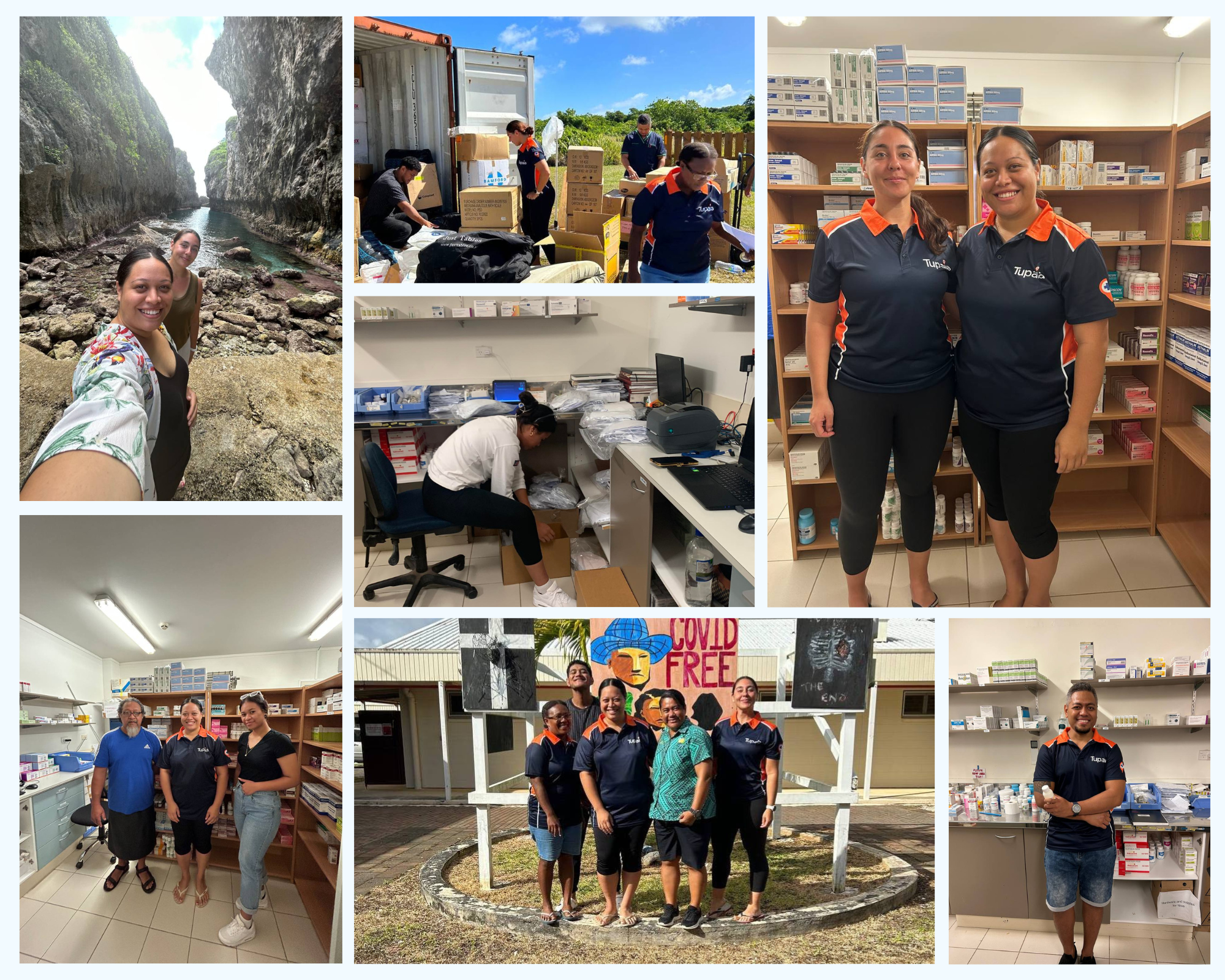
Elizabeth Bryson (The Cook Islands Ministry of Health) and Jessica Jago (DTAC) enjoy beautiful Niue in between stocktakes. The Pharmacy Dispensary Team: Ebony Feleti and Seddon Paka with Elizabeth Bryson from the Cook Islands Ministry of Health. The Public Health and Nursing Team, organising a stocktake of their medical consumables: Andy Manu, Reuben Siataga with nurse, Fonokalafi Moleni, and Jessica Jago (DTAC Project Manager). Ebony Feleti, organising the pharmacy. Team photo celebrating the launch of mSupply for the Public Health Department in Niue. Jessica Jago and Elizabeth Bryson after a long day of stocktake. Nurse, Fonokalafi Moleni in the pharmacy.

